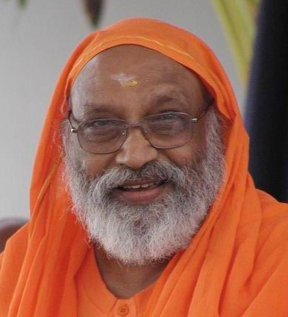
We often hear that Veda is scientific. Is this true? The Veda as a whole is looked upon as a means of knowledge in the Vedic tradition of learning. Being an independent means of knowledge, the subject matter of Veda has got to be one which is beyond the scope of other means of knowledge and it has to be meaningful as well.
Science is a body of knowledge gained by one’s perception and inference. Any scientific theory is therefore subject to contention. An error is committed when one makes a statement that the ‘Veda’ is scientific. Neither can a scientist accept the declaration nor one who knows the tradition can stand it. Proper it would be to say that the Veda is not illogical inasmuch as its area is independent of perception and inference.
When the last portion of the Veda, that is, Vedanta talks about the truth of oneself, does it reveal totally an unknown Self? If it does, the Self would be like heaven, which exists without any possibility of immediate knowledge in this life. If it talks about a Self which is self-evident, then the Self cannot be the subject matter of the Veda, it being already evident.
Vedanta, therefore, cannot be a part of the Veda since it reverses its status of being an independent means of knowledge. It will have no subject matter to be looked upon as one solely revealed by the Veda.
A human being employs various means of knowledge including the Veda to know. Every piece of knowledge becomes evident to the person through a relevant means of knowing. This person does not come to be evident through any means of knowing. Employing a means of knowledge presupposes the presence of the person who employs. Naturally the person is self-evident. So, existence of oneself does not depend upon any evidence born of any employed means of knowing.
Self-evident existence of oneself is revealed when one says: “I am”. So the Veda does not need to reveal the existence of the Self. If this Self is Brahman, the cause of the entire world, which is non-dually one, then there is no way of knowing that Reality by the individual, whose existence is no doubt self-evident but is taken to be the knower other than the known and who is subject to all forms of limitation.
Vedanta, in this area, is a means of knowledge to free oneself from the error. So it has a subject matter to be included in the Veda.
Here, in Vedanta, the subject-matter being myself, the knowledge unfolded by its sentences has got to be immediate. If any intellect raises any objection to the way in which the advaita sampradaya presents the meaning of the sentences like “tat tvamasi”-that you are, we employ reason along with the texts of the sruti and smrti to see the fallacy in the arguments raised by the one who objects or differs.
When the doubts and errors are cleared, the vision of Vedanta that “I am Brahman”, the whole stays without any blemish, proving that Vedanta is a means of knowledge, independent of perception and inference.
Swami Dayananda Saraswati is a renowned traditional teacher of Advaita Vedanta, and founder of Arsha Vidya Gurukulam.
Swami Dayananda Saraswati






